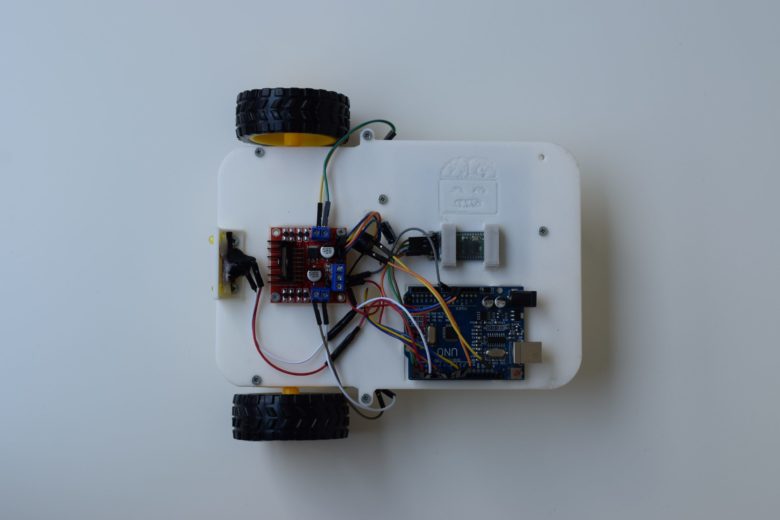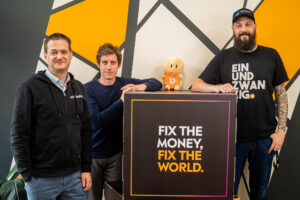EduBots: The Teenage Entrepreneurs Working On Making It Easier For Kids To Learn Robotics

The Teenovator program aims to help tenth- and eleventh-graders cultivate the skills and mindset necessary for a successful entrepreneurial life. The curriculum is based on Stanford University’s design thinking methodology and relies on extensive mentoring from members of the Bulgarian entrepreneurial community. Since the pilot in 2018/2019, Teenovator has expanded to 17 schools in three cities.
Its second edition ended in June with final presentations of teenagers who pitched various innovative solutions. Out of a total of 12 presented startup ideas, the first place went to the already operating EduBots, which is building training kits for kids to learn robotics.
The team has also won a spot in an accelerator program, organized by innovation agency Innovation Starter and the first funding of their project has been confirmed.
The start
“I have been playing with all kinds of gadgets since I was a little kid. In the 4th grade, I went to a robotics boot camp and I got excited about the field,” shares Russie Shishmanov, one of the young founders of EduBots.
Some of the other team members join Teenovator because it was recommended to them by friends who had participated last year and they were already thinking about working on a business in the future.
Getting the team together was the most valuable part of the Teenovator program, all of them agree. “That and meeting our mentor Georgi Natchev, who is one of the main reasons we made it this far. He gives us very good advice without forcing his opinion,” says Dimitar Seraffimov, one of the other founders.
Focused on market validation
EduBots has been working on making it easier for kids to take their first steps into robotics since the end of January, and the current team of five people was formed at the beginning of March.
“So far, we have built our first prototypes, made 25 educational videos that teach kids how to assemble and program a small robotic car. We are currently in the process of establishing a company. Our focus, for the time being, is on market validation, we sold the first 10 of our robots to test whether the tutorials can be well understood and see how we can improve them. Our main users are youngsters between the age of 10 and 15,” tells us Seraffimov.
The team aims to sell 300 educational kits and launch two more robot models, by the end of the year.
A kit for kids to learn robotics
We wanted to create something that’s simple to understand but gives a solid introduction to robotics. The ‘Hello World’ program in our case is to switch a light on and off. However, this is not very exciting, so the next step is to make the robot move. For users to control it, we added a Bluetooth module so kids get to learn about serial communication as well,” explains Shishmanov.
EduBot’s robotic car model has two motors, buzzer, headlights, and can be controlled via a phone application.
What’s next
EduBots is going to sell its educational kits online through its website, using the traditional e-Commerce model. There are also talks for the team to start trainings in several schools. The team wants to establish the model in Bulgaria and then scale it in Europe.
According to the team, EduBot’s main competitors are the organizers of LEGO robotics courses like Robopartans, however, Shishmanov highlights a few differentiators.
“LEGO robotics courses are much more basic and you have to be physically present. Our goal is for children to be able to learn at home, especially given the COVID-19 situation at the moment. Our goal is to provide a much deeper understanding of how robotics work while keeping it entertaining and simple.”
“Our vision is to create a series of robots – for earth, water, and air. We may add a subscription for sensors and other upgrade parts. Robotics in the world is not systematized. It is not very clear what you need to learn in order to do what you want. In the future, we dream of doing robot battles with robots, which further attract children’s interest in robotics,” shares Seraffimov.





























